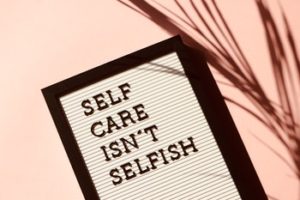
How Millennials And Gen Z Approach Mental Health Issues


The pandemic has put mental health at the forefront of today’s news, and for a good reason.
Depression continues to ravage the world’s economy, affecting more than 264 million people worldwide. Poor mental health is responsible for more than $1 trillion in lost productivity every single year.
Generation Z is one of the worst-hit, with 91% reporting physical or psychological pain due to stress.[2]
However, the American Psychological Association crowns Millennials as the most anxious generation, with 86% reporting going through a quarter-life crisis because they believe they are not successfully living life in contrast to others.[1] Millennials and Gen Z have the world at their fingertips. This has translated into an increased pressure to look perfect, sound perfect, and be perfect during every single moment of their lives. This article will ignore baby boomers and focus on Millennials and Generation Z in how they approach mental health issues.
At A Glance: Millennials
Born between 1981 and 1996, Millennials grew up hearing about anxiety and depression but not knowing where to get help. This generation was born in time to witness two economic collapses, political unrest, and the early stages of the climate catastrophe. A study conducted by Blue Cross Blue Shield found that 68% of Baby Boomers found their mental health to be in excellent condition, compared to only 49% of Millennials. [1] This generation is more likely to be perfectionist, anxious, depressed, and exhibiting OCD behaviors more than any other generation in the workplace.
 While some millennials grew up with social media and the internet, some did not. They experienced fewer of the positives of social media, along with the negatives. Mental health is among the top priorities of millennials, but they grew up facing severe stigma in treating their problems without the largest vehicle of positive mental health change: The internet.
While some millennials grew up with social media and the internet, some did not. They experienced fewer of the positives of social media, along with the negatives. Mental health is among the top priorities of millennials, but they grew up facing severe stigma in treating their problems without the largest vehicle of positive mental health change: The internet.
At A Glance: Gen Z
 Born between 1997 and 2012, Gen Z did not adopt the internet – they were molded by it. They are naturals at using technology and are one of the generations that openly speak about mental health. Discussions about mental health are as commonplace if they were discussing brushing their teeth or going for a routine health check-up. Gen Z spends more than 10 hours every single day glued to their screens.[2] This was the first generation to experience the toxic side of social media at a very early age. Although, they have since benefited from transforming the internet into a vehicle for the promotion of mental health causes and in reducing the stigma of anxiety and depression.
Born between 1997 and 2012, Gen Z did not adopt the internet – they were molded by it. They are naturals at using technology and are one of the generations that openly speak about mental health. Discussions about mental health are as commonplace if they were discussing brushing their teeth or going for a routine health check-up. Gen Z spends more than 10 hours every single day glued to their screens.[2] This was the first generation to experience the toxic side of social media at a very early age. Although, they have since benefited from transforming the internet into a vehicle for the promotion of mental health causes and in reducing the stigma of anxiety and depression.
How Millennials Approach Mental Health Issues Millennials belong to a generation in which talking about mental health problems or asking for health was perceived as wrong and unusual. There was a severe stigma attached to mental health issues owing in part to the mindset of baby boomers and previous generations. These generations view those that came after them as lazy and coddled when the research suggests the opposite.[1] Millennials are a product of toxic stigmas. Although seeking help and treatment is slowly growing more acceptable, most millennials cite financial problems as their main issue in being able to find counseling and therapy. Millennials report less social media usage than Generation Z. And despite higher levels of education than their parents, they still struggle with being able to make rent and pay for basic necessities.
How Generation Z Approaches Mental Health Issues
Millennials might have been the generation to initiate changes in the perception of mental health, but Generation Z is the group that really went the extra mile. Gen Z sees nothing wrong with asking for mental support and are the most vocal groups to talk about their mental health and encouraging it among their peers. Gen Z prefers to deal with their issues and quickly move forwards. This manifests in their positive mindset towards mental health. They don’t associate asking for mental health with weakness like their parents or grandparents and have grown up in a world where asking for mental support is perfectly normal. Social media plays a large role in this, as Gen Z uses it as a platform to connect with others and share in their mental health struggles. It is normal for Gen Z to be bombarded with advertisements on social media about their mental health. This has played an important part in the normalization of mental health problems and reducing their stigma. Money worries and the workplace are one of the largest causes of distress for millennials and gen Z alike. If the mental health of the world is to improve, it’s imperative for employers to take steps to reduce stress and eliminate burnout. Health plan providers such as Humana have a time-tested and multifaceted approach to treating mental illnesses and improving productivity. Humana takes pride in being a good corporate citizen in helping people and communities be healthier. Click here to find out how we can help you. Click link to find Therapist https://www.westsidebehavioralcare.com/
Gen Z sees nothing wrong with asking for mental support and are the most vocal groups to talk about their mental health and encouraging it among their peers. Gen Z prefers to deal with their issues and quickly move forwards. This manifests in their positive mindset towards mental health. They don’t associate asking for mental health with weakness like their parents or grandparents and have grown up in a world where asking for mental support is perfectly normal. Social media plays a large role in this, as Gen Z uses it as a platform to connect with others and share in their mental health struggles. It is normal for Gen Z to be bombarded with advertisements on social media about their mental health. This has played an important part in the normalization of mental health problems and reducing their stigma. Money worries and the workplace are one of the largest causes of distress for millennials and gen Z alike. If the mental health of the world is to improve, it’s imperative for employers to take steps to reduce stress and eliminate burnout. Health plan providers such as Humana have a time-tested and multifaceted approach to treating mental illnesses and improving productivity. Humana takes pride in being a good corporate citizen in helping people and communities be healthier. Click here to find out how we can help you. Click link to find Therapist https://www.westsidebehavioralcare.com/



